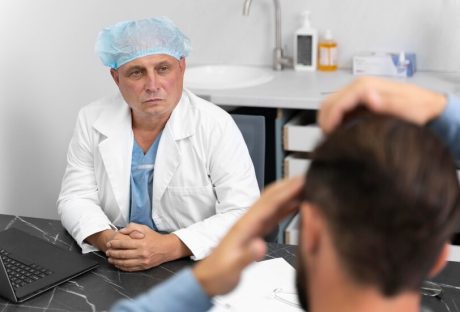If you suffer from dry eyes, it’s important to make sure your diet is providing your body with the nutrients it needs. Your optometrist can help you with dietary changes to support your eye health and decrease symptoms.
Certain vitamins and nutrients can improve your tear quality and reduce dry eye symptoms. Some of these include Vitamin A, Vitamin C, and Omega-3 fatty acids.
Vitamin A
Vitamin A is a fat-soluble compound that aids in the growth of cells and tissues throughout the body, including those of the eye. It’s found in a variety of foods, including carrots, spinach, and apricots.
The body can convert carotenoids to retinol, the active form of vitamin A. This happens as the body needs it, and it’s possible to get this vitamin from food sources or supplements.
A deficiency of this vitamin is associated with poor tear quality and tear film dysfunction, which may lead to dry eye symptoms. The best way to ensure you have enough of this essential nutrient is by eating a balanced diet rich in foods that contain vitamin A, such as carrots and other orange-yellow vegetables.
Another important nutrient that may help with dry eyes is Vitamin D, which decreases inflammation and improves the lubrication ability of the tear film. Some sources of this nutrient include eggs, fish, and fortified cereals.
Finally, Omega-3 fats have been shown to reduce inflammation, which may be helpful for reducing irritation and dry eye symptoms like pain and itching. They also increase the amount of oil in your eyelids, which affects how quickly tears evaporate.
Whether you need to add more nutrition to your diet or want to take vitamins to help treat your dry eyes, it’s important to speak with your eye doctor before you start any new treatment plan. With proper care, you can maintain healthy vision and minimize your dry eye symptoms for good.
Fish Oil
Fish oil is considered one of the best vitamins to take for dry eyes. It is high in omega-3 fatty acids, which can help reduce inflammation and soothe your eyelids.
Omega-3 fatty acids can also stimulate the production of oils in your meibomian glands, which are responsible for producing tears that lubricate the surface of your eyes. It can also help prevent dry eyes from occurring in the first place.
Fatty fish, including herring, halibut, salmon, and tuna are excellent sources of omega-3 fatty acids. They can be a great addition to a healthy diet to relieve dry eyes and other symptoms associated with dry eyes such as watery eyes, itchy, irritated eyes, and burning sensations.
It can also help to improve your vitamin D level, which is crucial for your eye health. Studies suggest that a deficiency of Vitamin D may be linked to dry eye syndrome, so adding it through diet or supplements is helpful in reducing symptoms and improving tear quality.
This vitamin is important for your retina, where it plays a key role in the health of your vision. It’s also a key antioxidant that protects your eyes from the sun.
You can also get Vitamin A from foods like carrots, spinach, and tomatoes. Taking vitamin A supplements may be beneficial for some individuals who are deficient in this nutrient. This vitamin is a powerful antioxidant that can also reduce the risk of developing eye diseases and infections.
Vitamin C
Vitamin C, also known as ascorbic acid, is a water-soluble vitamin that’s needed to help your body fight infection, heal wounds and keep tissues healthy. It’s available in fruits and vegetables, such as citrus fruit, strawberries, cantaloupe, green peppers, tomatoes, broccoli, and leafy greens.
This vitamin helps lubricate your eyes and prevent dryness. It’s also an antioxidant that helps protect the blood vessels in your eye and prevent cataracts.
It’s best absorbed from foods, but it can be injected into the vein (intravenous) if necessary. Higher doses of intravenous vitamin C can be helpful in treating certain medical conditions, such as cancer.
But it can also cause negative side effects if it’s taken in too much, so talk to your doctor before you take any supplements.
Omega-3 fatty acids, which are found in fish oil, can reduce inflammation and improve the quality of your tears. They also promote the production of oils in your meibomian glands, which are responsible for keeping your tears moist and preventing them from evaporating too quickly.
These nutrients are found in eggs, fish, dark leafy greens, and other food sources. You can also get them from multivitamins and other supplement products.
It’s important to make sure you get enough of all the vitamins and minerals you need through a balanced diet. However, if you’re unable to achieve your recommended daily intake, supplements can be helpful to ease the symptoms of dry eyes.
Read Also: How To Care For Your Eye In 5 Medically Proven Ways
Omega-3 Fatty Acids
Omega-3 fatty acids are essential nutrients that are found in foods like fish and seafood, eggs, and dark leafy vegetables. They are also available in supplements, but the body can’t produce them on its own, so a healthy diet is the best way to get them.
One study shows that consuming omega-3 fats from fish can lower your risk of dry eye. In fact, researchers found that women who consumed the most omega-3s had a 17% lower risk of developing dry eyes.
Aside from reducing inflammation, omega-3s may also help your eye make more natural tears. This is because they improve the quality and quantity of the tear film.
However, if you are looking to supplement with omega-3s, it is important to choose supplements that contain EPA and DHA (docosahexaenoic acid) rather than ALA (alpha-linolenic acid). Although flaxseed oil contains ALA, it doesn’t have the same effect on your eyes as EPA or DHA do.
Several studies show that supplements can help improve dry eyes, but it’s important to talk to your doctor before you take them. They will be able to recommend the best supplements for you. And they will know how much you should take to benefit your eyes and overall health.
Vitamin D
Adding the right vitamins and nutrients to your diet can help improve the health of your eyes, including those suffering from dry eye syndrome. It can also reduce itchiness, burning, and irritation.
Vitamin D is an important nutrient that can be found naturally in fish, dairy products, and mushrooms. It’s also available as a supplement if you don’t get enough sunlight to reach your optimal level, which is usually 600 IU or more per day.
It’s particularly important for people with darker skin pigmentation, as they produce less vitamin D through exposure to the sun than those with light-colored skin. This means that even if you’re getting plenty of sunshine, you may not be able to get the level of vitamin D your body needs to keep your eyes healthy.
Another way to ensure that your eyes are receiving the nutrients they need is to add zinc to your diet. Zinc is a mineral that helps the liver deliver vitamin A to the retina to produce melanin, a pigment that protects your eyes.
While some studies have shown that taking supplements can help ease symptoms of dry eye, be aware that excessive intake can lead to side effects and toxicity. It’s always advisable to speak with an optometrist or a pharmacist to make sure that any supplements you are considering are safe for you and your unique health situation.
Lutein & Zeaxanthin
Lutein and zeaxanthin are two antioxidants that have been shown to protect your eyes from dry eye syndrome, macular degeneration, and cataracts. They can be found in a wide range of foods, including leafy greens like spinach and kale. They can also be taken as dietary supplements.
These antioxidants help your eyes by reducing oxidative stress and free radical damage. They also help protect your eyes from light glare and UV rays.
They can also slow down macular degeneration, a disease that affects your central vision. It happens when blood vessels in the macula leak fluid. It is a leading cause of blindness in older people.
The best way to get these important vitamins into your body is to eat a balanced diet rich in fruits and vegetables. It is also a good idea to increase your intake of omega-3 fatty acids, which can improve the quality of your tears and reduce inflammation in your eyes.
Zinc is another nutrient that can help your eyes stay healthy. This mineral is needed to transport vitamin A from your liver to your retina and to produce melanin, which helps protect your eyes from infection and injury. It is found in a wide variety of foods, including dairy, nuts, legumes, and whole grains.
Lutein and zeaxanthin can also be taken as dietary supplements, but you should always speak with your doctor before taking any new vitamins or supplements to ensure they are safe for you.


























